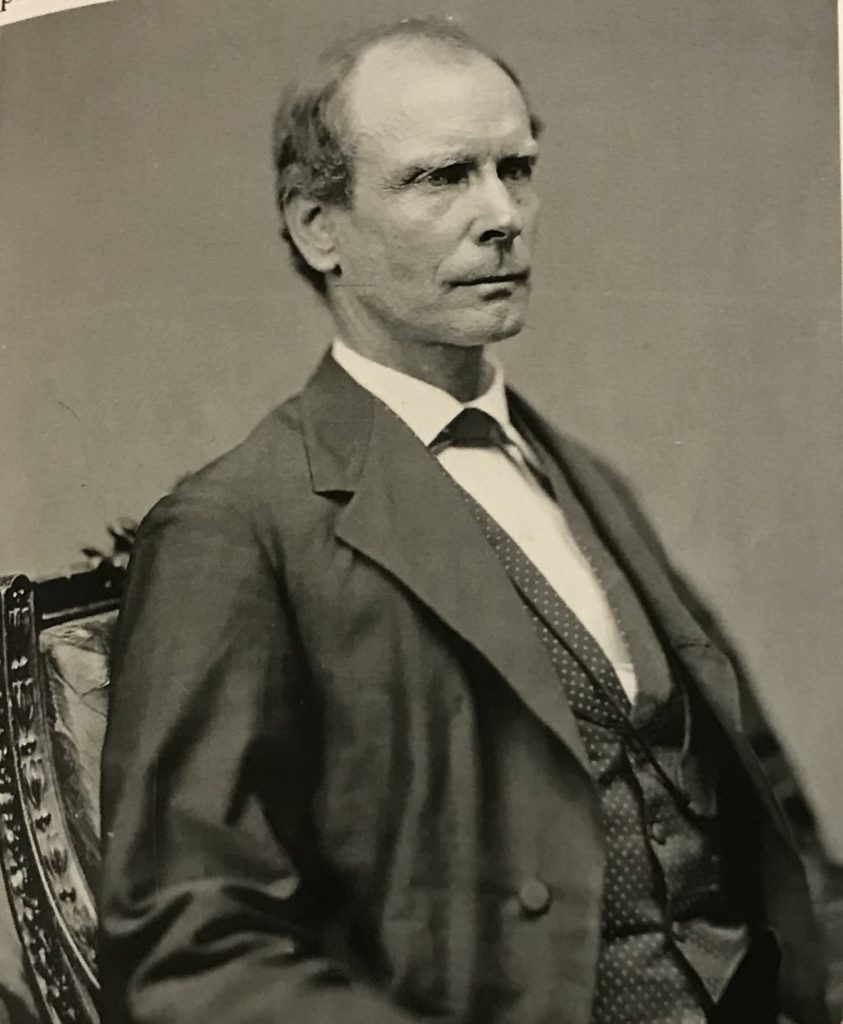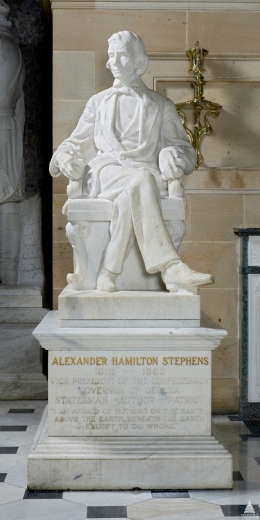Some Confederates are worthy of commemoration. GA's Amos T. Akermanis one of them. A former slaveowner and Confederate colonel, he repudiated the old ways, and ended up becoming Grant's 2nd Atty Gen in November, 1870. In that capacity, he led Grant's crusade against the KKK.
Between the Civil War and his appointment as Grant's Attorney General in 1870, Akerman settled in Cartersville, GA. He moved there after being run out of his antebellum home of Elberton. The reason: he had led a group of former slaves to the ballot box.
Akerman was also a delegate to Georgia's 1868 Constitutional Convention, a supporter of Grant's Presidential campaign that year, and a state Republican elector.
Grant appointed Akerman the US Attorney for Georgia in 1869, and in that capacity, he argued in favor of seating mulatto Richard W. White as Superior Court county clerk, as he had won the race. White's opponent William James Clement had claimed White ineligible due to his race.
Akerman's argument centered upon the assertion that Georgia's pre-war laws concerning race and elected office were invalid because they were grounded in the slave society of the South. You can read the whole case here: https://books.google.com/books?id=L6usC5BN5uMC&lpg=PA9&ots=Nfe9ioiecv&dq=%22Can%20a%20Negro%20hold%20office%20in%20Georgia%3F%22&pg=PA7#v=onepage&q=%22Can%20a%20Negro%20hold%20office%20in%20Georgia?%22&f=false
The former Confederate colonel Akerman understood the extent of the Klan's reign of terror in the South, and he convinced Grant to declare martial law in 9 South Carolina counties that he considered to be in a state of rebellion.
In a move demonstrating the courage of his convictions, Amos Akerman headed to South Carolina to personally lead the army and a squad of US Marshals in arresting hundreds of members of the Klan. He saw to it that they were tried in federal courts, as state courts were useless.
Akerman's Department of Justice, with the assistance of then-Solicitor General Benjamin Bristow, indicted 3000 Klan members and obtained 600 convictions.
Akerman personally oversaw the prosecution in 1100 cases.
Akerman personally oversaw the prosecution in 1100 cases.
The rest of Grant's Cabinet grew tired of Akerman's bi-weekly sermons against the atrocities of the Klan. Between a desire to put the Civil War in the past and their distaste for his refusal to be bought off for the railroads, they convinced Grant to pressure Akerman to resign.
Akerman resigned as Attorney General in December, 1871, having been in that office for just over a year. He moved back home to Cartersville, GA, to practice law. He died there in December, 1880. His time as Grant's AG was his only experience in federal politics in DC.
For its part, the city of Cartersville finally honored its favorite son in 2019, when a historical marker was placed on the site of Amos Akerman's home detailing his exploits. https://www.ajc.com/blog/politics/discovering-amos-akerman-lost-gop-hero-the-19th-century-south/9VqXrSZsoRXYT8SvGXOIUP/
Akerman's legacy is mostly forgotten, but that needs to change. Perhaps no single Southerner so well embodies both American reunification, the belief in equal justice for all, and the repudiation of the South's slave society.
To my knowledge, he has no statues in his honor.
To my knowledge, he has no statues in his honor.
Every state is allowed to send two statues to the US Capitol's Statuary. Georgia's are Dr. Crawford Long, discoverer of ether, and Confederate VP Alexander Stephens. MLK is given one elsewhere in the building, making Georgia, to my knowledge, the only state with three statues.
If Georgia wishes to embrace the full spectrum of its past, perhaps they should consider replacing the statue of Alexander Stephens with Grant's Attorney General Amos Akerman--the slaveowner and former Confederate who renounced the evils of the past and did the right thing.
William McFeely's article "Amos T. Akerman: The Lawyer and Racial Justice" is the only thing approaching a biography of him we have, in a long out of print festschrift to C. Vann Woodward.
Anyways, more Southerners should reflect on Akerman's words (underlined).
Anyways, more Southerners should reflect on Akerman's words (underlined).
Apparently, current Georgia state Attorney General Chris Carr considers Amos Akerman something of a role model, especially in the Ahmaud Arbery case. https://www.ajc.com/blog/politics/chris-carr-and-different-reaction-racially-charged-killing/xoZdAmkte8fBS5qV5GaEHM/

 Read on Twitter
Read on Twitter








